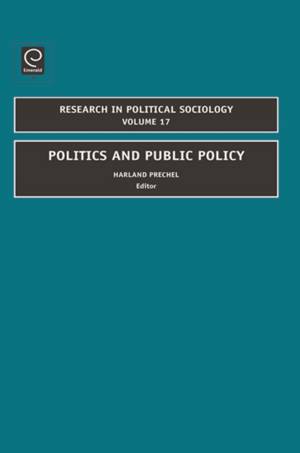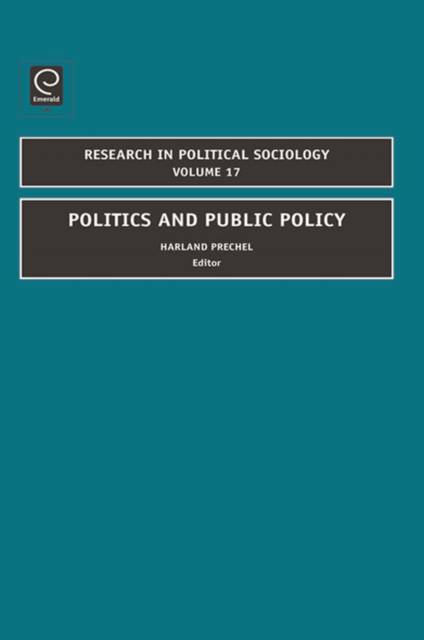
- Retrait gratuit dans votre magasin Club
- 7.000.000 titres dans notre catalogue
- Payer en toute sécurité
- Toujours un magasin près de chez vous
- Retrait gratuit dans votre magasin Club
- 7.000.0000 titres dans notre catalogue
- Payer en toute sécurité
- Toujours un magasin près de chez vous
Politics and Public Policy
248,45 €
+ 496 points
Description
This volume of "Research in Political Sociology" focuses on one of the central themes in political sociology: the relationship between political power and the policy formation process. The first section examines the exercise of power in two distinct policy arenas: the interlocking networks among policy-planning organizations, and the effects of PACs on the voting behavior of elected officials in Canada and the U.S. In contrast to corporate interlocking directorates, although a shift to the right occurred in the 1980s and 1990s, board interlocks of policy-planning organizations are relatively stable over time. The second article shows that PACs affect voting behavior of U.S. elected officials, but they have little influence on voting in Canada's House of Commons. This suggests that the structure of the state affects the capacity of elites to exercise power over it.The second section examines the capacity of theories in economic sociology to explain the social organization of capitalism. The authors move beyond the current institutional frameworks by elaborating how the generic tendencies and contradictions of capitalism generate political conflicts and outcomes. This framework also stresses how organizational and institutional structures, class conflict, logics of action, and the contradictions of capitalism shape and limit the options that are available to social actors. The articles in the third section examine the effects of labor and community based political strategies on policy outcomes. These articles identify the contingent basis of political behavior and show how social structures and historical conditions create both opportunities for and limitations on the exercise power.Whereas the legal structure of labor relations in the U.S. limited the capacity of workers to mobilize, the flexibility of community-based coalitions increased their capacity to form coalitions to mobilize politically. Together, the articles in this volume show that political struggles are integral to capitalist society. These struggles take a range of forms and the outcomes are affected by the historically specific organizational and institutional arrangements in which they are embedded.
Spécifications
Parties prenantes
- Editeur:
Contenu
- Nombre de pages :
- 150
- Langue:
- Anglais
- Collection :
- Tome:
- n° 17
Caractéristiques
- EAN:
- 9781848551787
- Date de parution :
- 01-10-08
- Format:
- Livre relié
- Format numérique:
- Ongenaaid / garenloos gebonden
- Dimensions :
- 155 mm x 231 mm
- Poids :
- 476 g

Les avis
Nous publions uniquement les avis qui respectent les conditions requises. Consultez nos conditions pour les avis.





